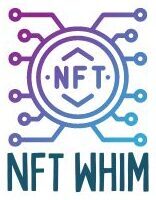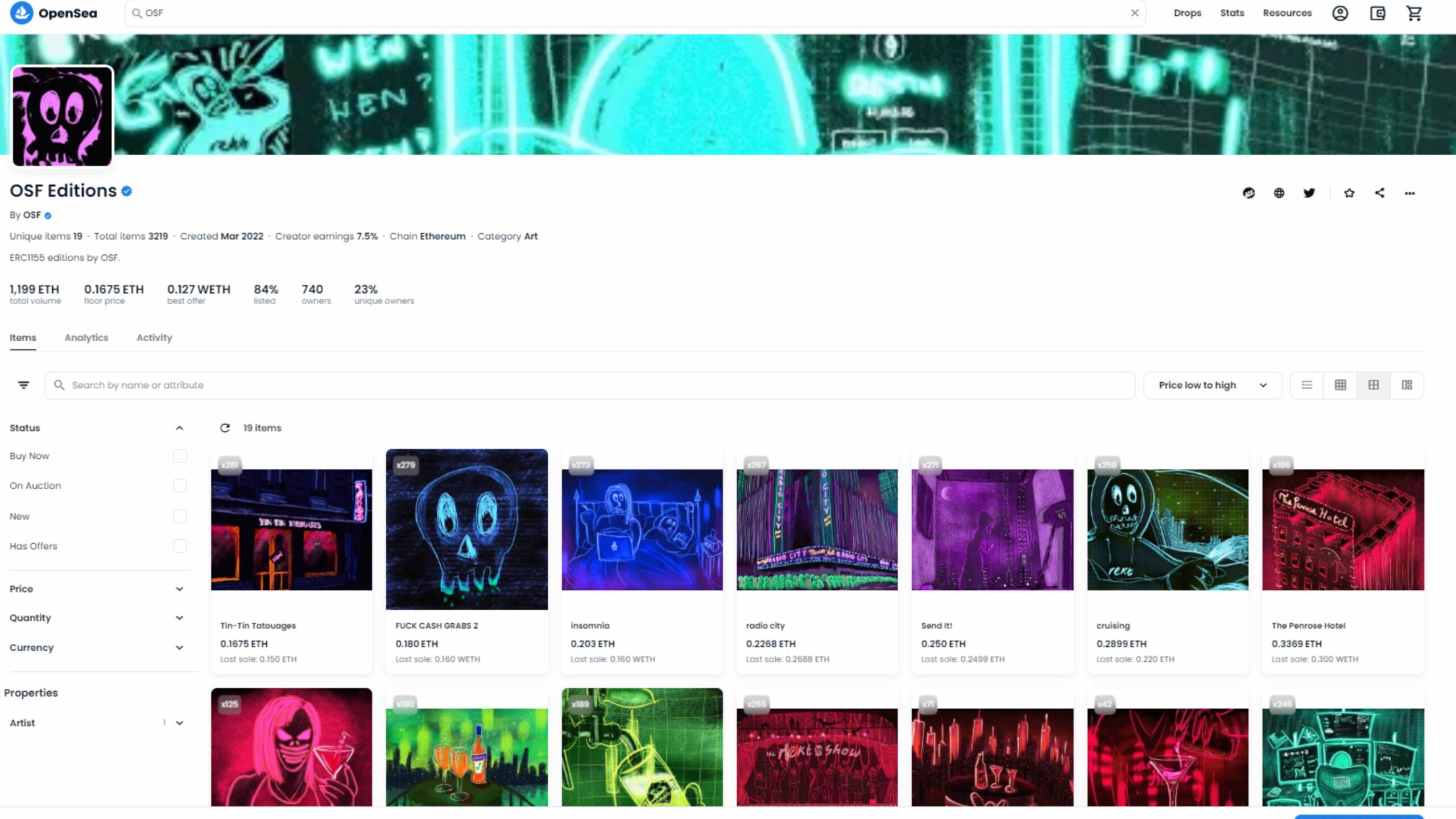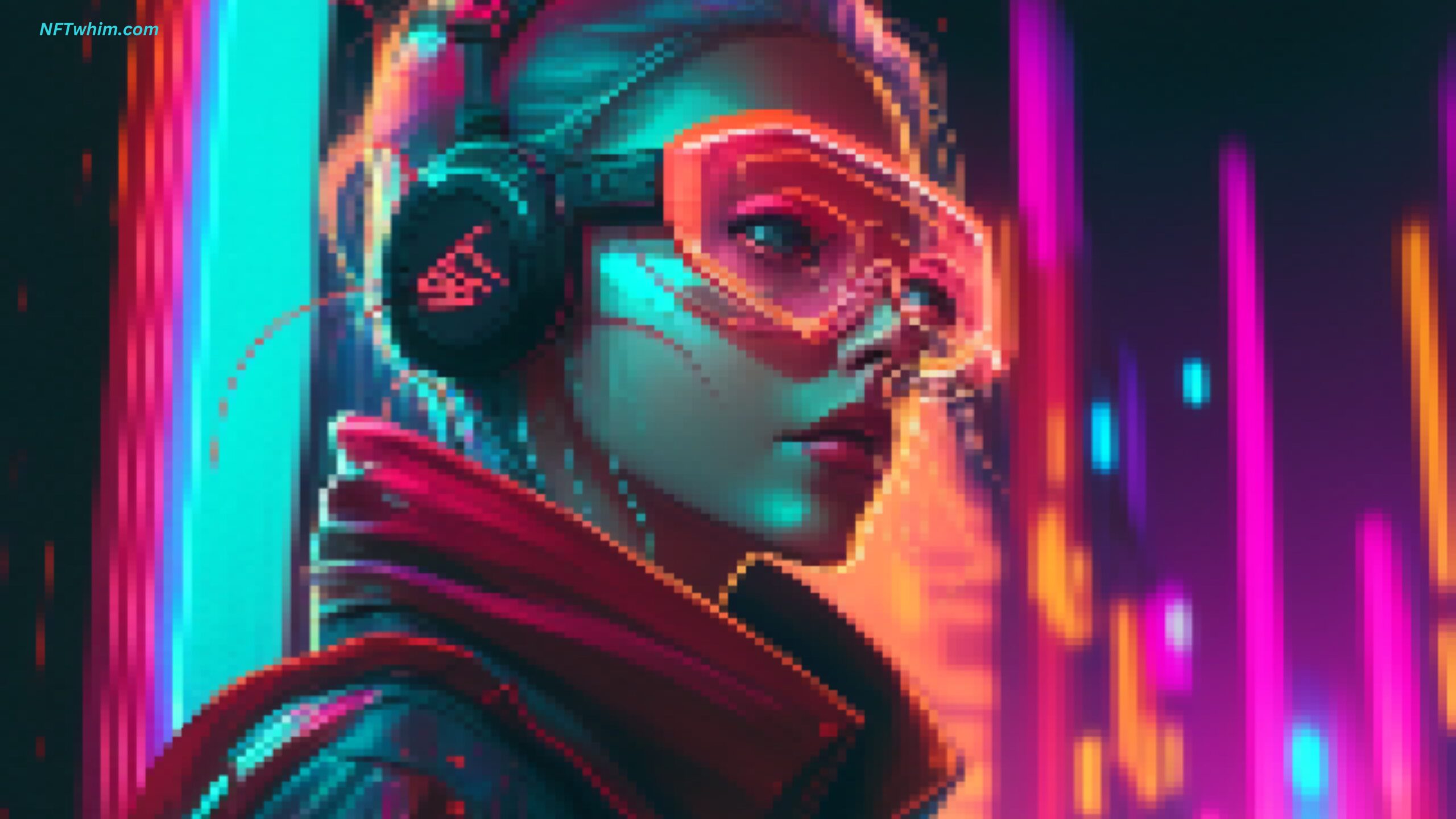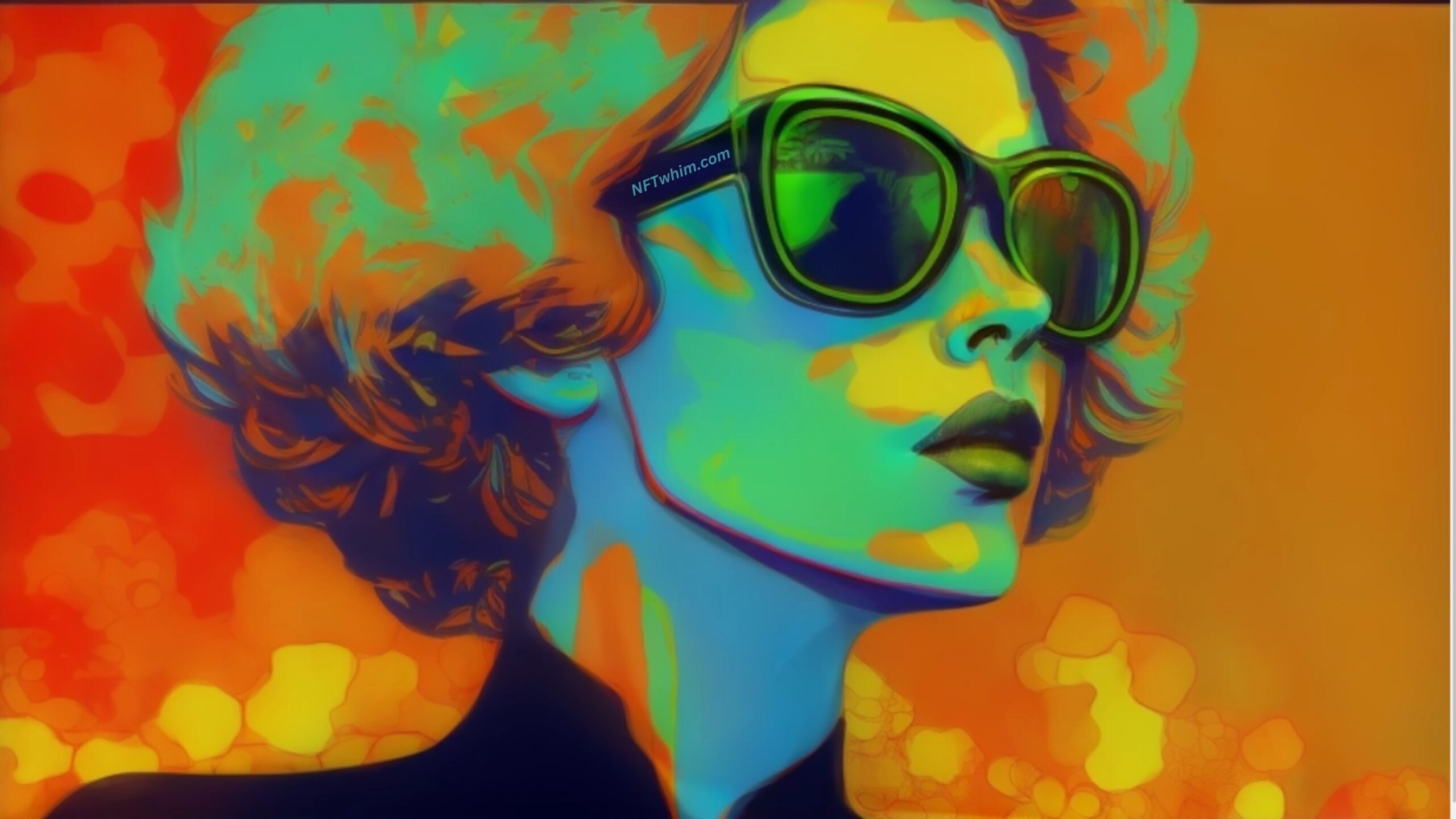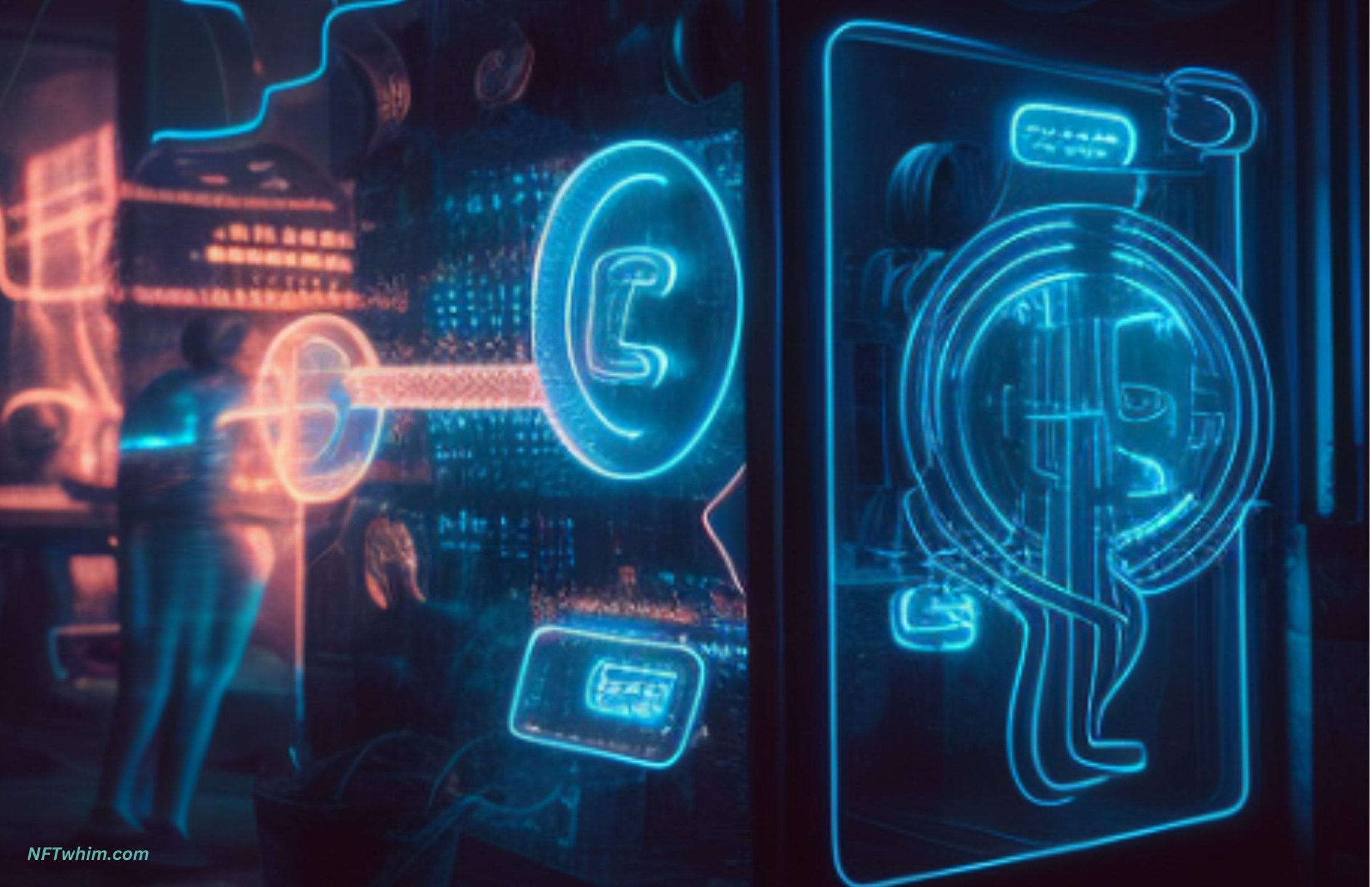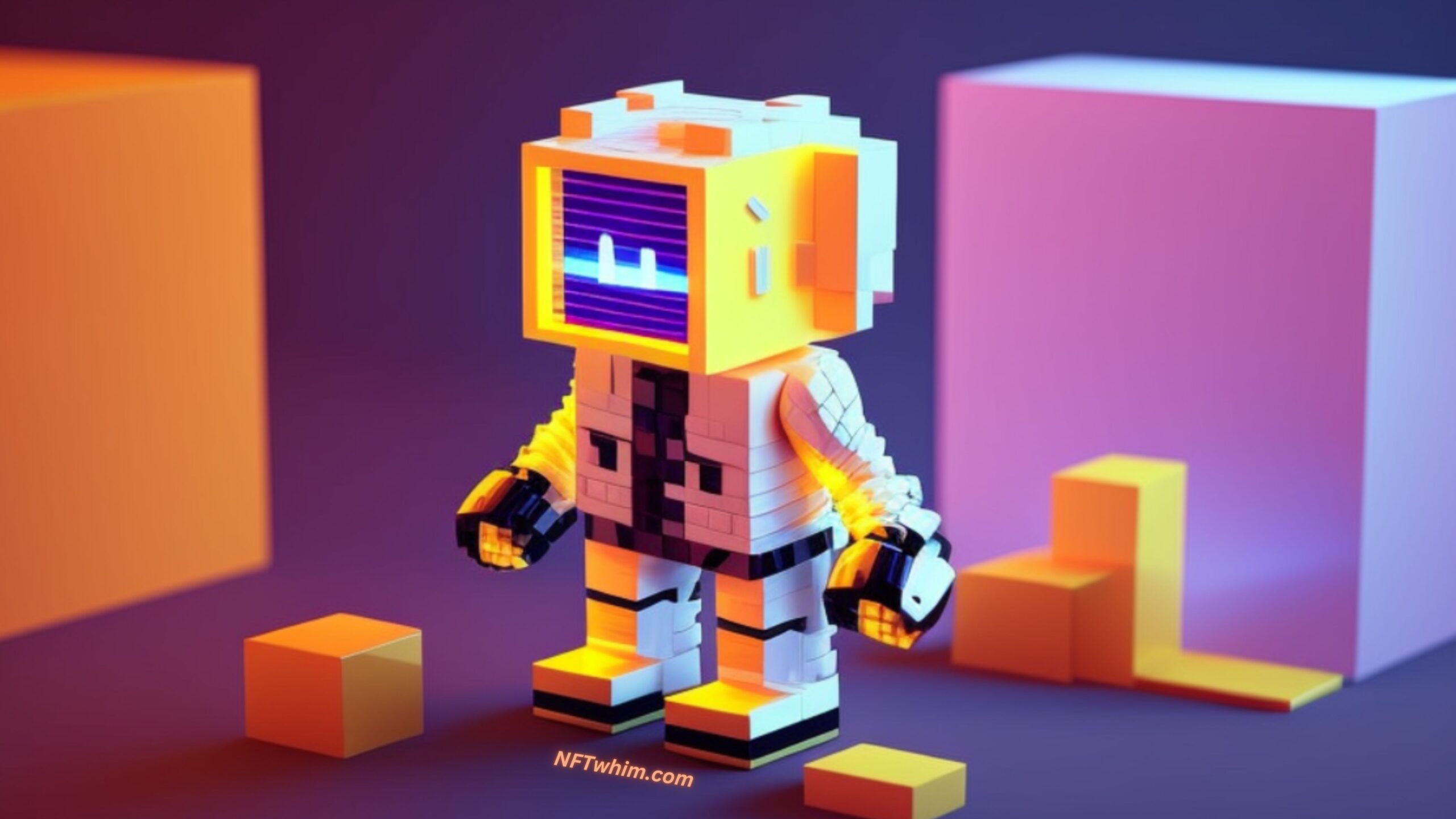In today’s world, freedom is one of the most sought-after commodities. We yearn for it in our lives, and we crave it in our music. But what if there was a way to combine these two desires? Enter Music NFTs – a revolutionary new technology that has the potential to revolutionize how we think about music ownership and control.
Music Non-Fungible Tokens (NFTs) are digital assets built on blockchain technology that allow users to purchase and own unique pieces of music or music-related art. These tokens can be bought, sold, traded, or even given away as gifts – giving power back to the artist while still allowing fans to enjoy their favorite tunes without having to rely on third party streaming services. With this newfound sense of autonomy comes a greater level of engagement between artists and fans, creating an environment where both parties benefit from each other’s successes.
In short: Music NFTs offer a new layer of freedom never before seen in the industry. They provide musicians with more control over their work while simultaneously granting listeners unprecedented access – all within a secure and immutable platform. So if you’re curious to find out everything there is to know about Music NFTs, read on!
Here is an outline of what we’ll cover today:
Table of Contents
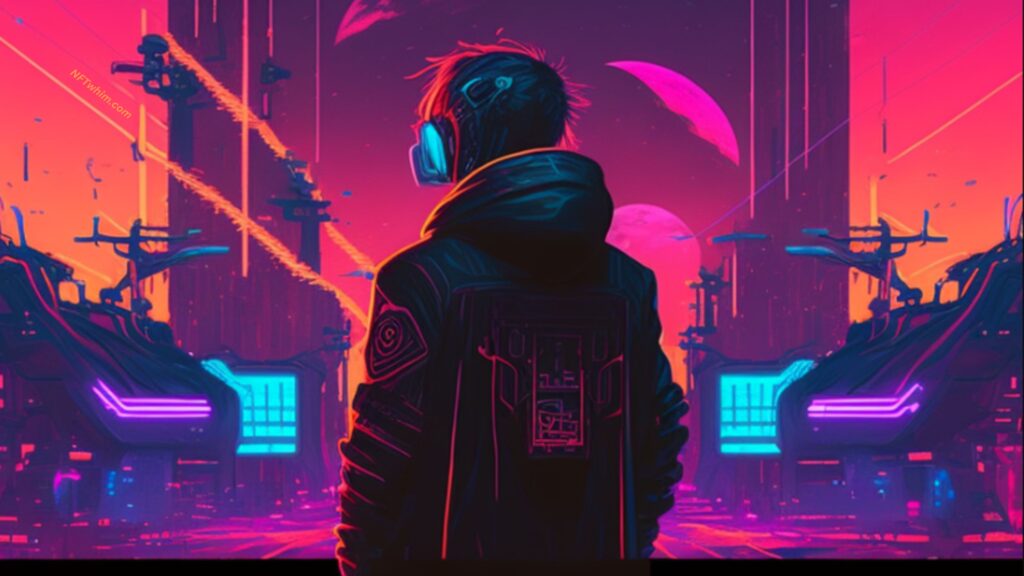
But before we start, if you’re an (aspiring) artist looking to create and sell your own Music NFTs, you may want to read this linked guide.
Definition Of NFTs
NFTs, or Non-Fungible Tokens, are like digital fingerprints: each one is unique and can’t be replicated. They are a type of digital asset that uses blockchain technology to provide proof of ownership and authenticity.
Unlike other forms of currency, NFTs represent a physical or virtual item that cannot be exchanged for the same item in return; they are non-fungible by nature. This makes them ideal for authenticating creative works such as music recordings. The value of an NFT is determined by its scarcity and desirability within the market.
In essence, owning an NFT allows individuals to own a piece of art or music without having physical access to it – granting users undeniable rights over their digital assets. As more people become aware of this new form of asset ownership, the demand for these tokens continues to rise exponentially.
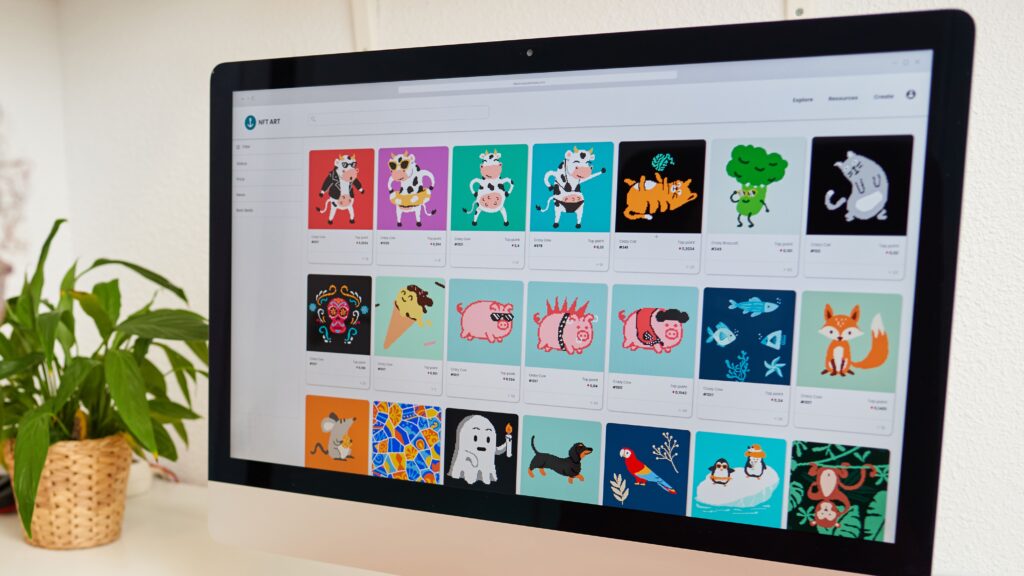
History And Usage Of NFTs
NFTs, or non-fungible tokens, have been around for a few years now. They’re digital assets that exist on the blockchain and are used to represent music, art, collectibles, physical items, tickets and more. NFTs became more well-known to art and crypto enthusiasts around 2017, when they were adopted on the Ethereum network. (Prior to that, some NFTs existed on the Bitcoin network.) Since then, they’ve become increasingly popular due to their ability to offer users ownership over digital content. This has allowed creators to monetize their work while still retaining control over it.
The usage of NFTs is varied and can be applied across different industries like gaming, sports betting and even real estate investments. With cryptocurrency being accepted by more people each day, NFTs are becoming an attractive option as a medium of exchange for goods and services. As well as enabling peer-to-peer transactions without the need for third parties or banks, blockchain technology brings with it added security which makes them ideal for investment purposes too. All this means that NFTs offer tremendous potential both now and into the future.

What Are Music NFTs?
Music NFTs, or Non-Fungible Tokens, are a relatively new concept in the music industry. At their core, they allow for digital collectibles to be stored on blockchain technology and traded as unique pieces of art.
The emergence of Music NFTs opens up exciting possibilities for artists and fans alike. Here’s what you need to know about this revolutionary technology:
- It provides more control to creators over how their works are distributed and monetized.
- It enables collectors to own exclusive rights to one-of-a-kind digital assets that can appreciate in value over time.
- With it comes access to an entirely new way of investing in music through tokenization, allowing investors to get involved with groundbreaking projects while benefiting from financial gains.
- Music NFTs enable stronger connections between artists and their audiences by providing deeper engagement opportunities than ever before.
- The potential use cases for blockchain music are virtually limitless – everything from streaming services and ticketing platforms to virtual concerts could benefit from its implementation.
This is just scratching the surface of what Music NFTs have to offer; there’s immense potential here for both musicians and fans looking to take part in something truly impactful. Already we’re seeing some incredible stories emerging within the community that demonstrate why these tokens will continue becoming increasingly valuable moving forward. Let’s embrace the power of blockchain technology together and build an even brighter future for music!

Benefits Of Music NFTs
The advantages of music NFTs are plentiful. They allow artists to monetize their work, and engage with fans in new ways. It also creates a platform for art that is secure and immutable, allowing it to be traded freely without the need for third-party intermediaries. Artists can issue limited edition works and special releases on the blockchain, creating scarcity which drives up demand as well as value. Additionally, they can set prices at any level they choose, giving them control over how much money they make from each sale.
Music NFTs have opened up possibilities for musicians to get paid more directly. Fans can now purchase digital collectibles or access exclusive content like concerts or behind-the-scenes footage through this technology. This provides an additional revenue stream while still maintaining ownership of the intellectual property rights associated with their music. In addition, these tokens open up avenues for further collaboration between fans and artists – many platforms offer tokenized representation of fan engagement activities such as voting and tipping. As a result, both sides gain increased opportunities to interact in meaningful ways while providing financial incentives for those involved.
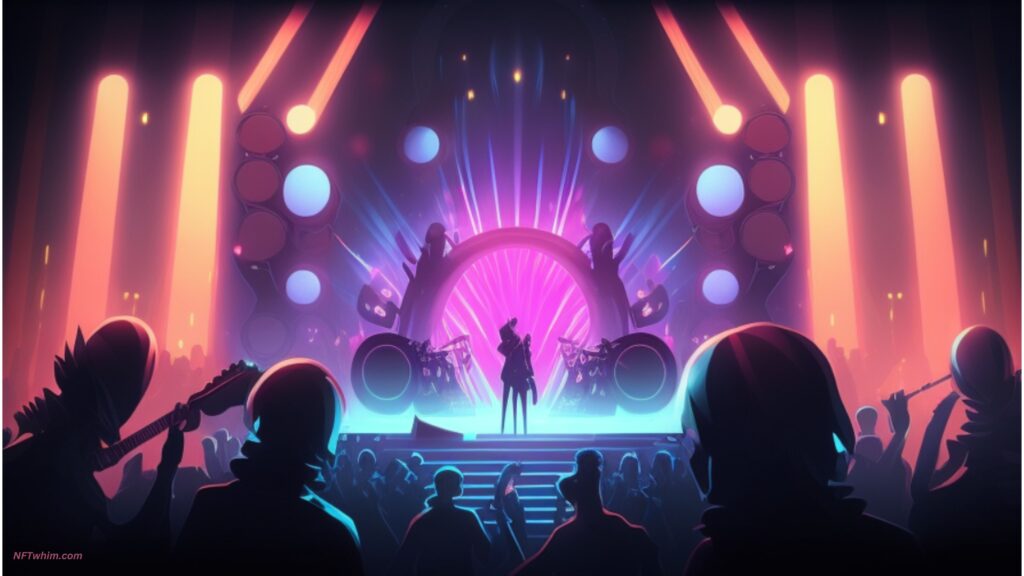
How To Buy And Sell Music NFTs
Buying and selling music NFTs is a great way to show your support for the artist while also investing in their art. Music NFTs are digital assets that give you ownership of a piece of music or video, allowing you to own it forever. To buy and sell music NFTs, you need an account on one of the available platforms such as OpenSea or Rarible. These websites offer many different types of NFTs from various artists and genres.
Once you’ve opened an account on one of these sites, you can browse through the selection and get familiar with how they work. You can then use either cryptocurrency or (sometimes) fiat currency to purchase the desired item(s). Depending on which platform you choose, there may be additional fees associated with buying or selling music NFTs so make sure to read up before making any purchases. Additionally, some platforms will require verification before allowing users to make transactions so keep this in mind when deciding where to buy or sell your music NFTs. With all that said, once everything is set-up properly, buying and selling music NFTs should be fairly straightforward!

Platforms For Music NFTs
Platforms for Music NFTs are emerging as a new way to buy and sell digital music rights. These platforms provide users with access to the music nft marketplaces, exchanges, and other services that make it easier than ever to own or trade digital art. With these platforms, artists can create their own unique works of art using blockchain technology, while buyers can safely purchase them without worrying about any legal issues.
One popular music nft platform is AudioCoin’s marketplace. It allows musicians to tokenize their work and then offer it up on the ACOIN marketplace. From there, fans can purchase tokens representing ownership of parts or all of the song. This provides an easy way for creators to monetize their content in a secure manner. Other platforms like Musicoin also use blockchain technology to allow artists to securely store and exchange songs for money or cryptocurrency. Additionally, specific NFT platforms such as SuperRare exist where people can buy and sell existing works from around the world. Many of these larger platforms have a special category for Music NFTs that can be found easily by collectors.
With this growing number of options available, now more than ever before individuals have unprecedented opportunities to discover, acquire and share digital artworks through music NFTs.
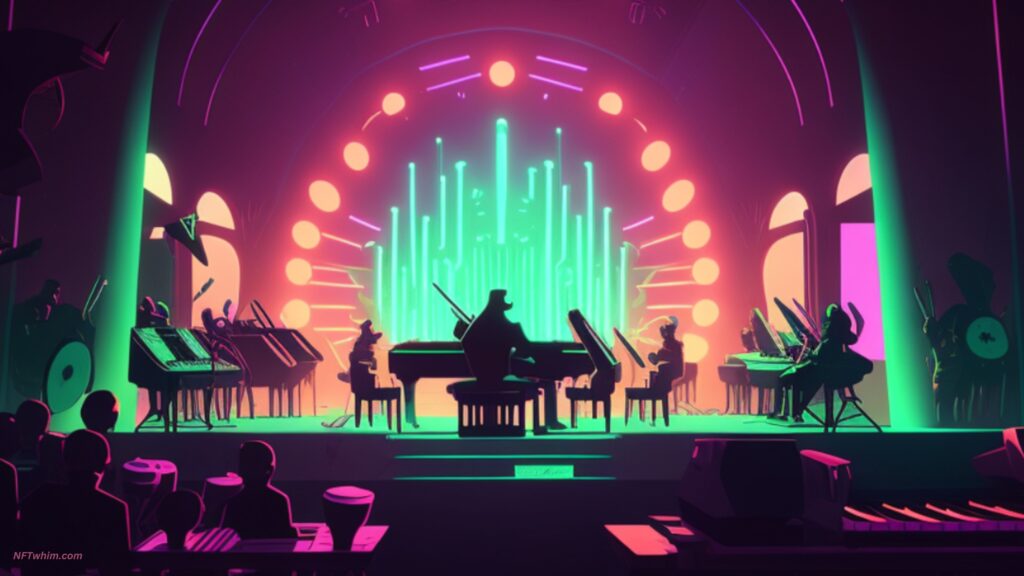
Types Of Music NFTs
NFTs have revolutionized the music industry, offering a new and exciting way to tap into digital assets. The possibilities are endless when it comes to types of Music NFTs available today. From tokenized albums to digital artwork and royalty streams, these unique non-fungible tokens represent more than just pieces of art–they grant access to soundscapes that capture the imagination.
The concept of tokenizing an album is one that has been gaining traction in recent years as record labels look for ways to monetize their content while also giving fans exclusive experiences they can remember forever. With this type of NFT, buyers receive download links for entire albums with high quality audio files along with bonus content like behind-the-scenes videos or even private concerts from artists themselves.
This technology has opened up so many doors for creators who want to get creative with their work and share something special with their supporters. For example, in addition to the music, digital art such as 3D models, GIFs, posters and other visuals created by musicians can be made available for sale through the blockchain.
Additionally, some projects offer royalty streams on certain works which allow holders of Music NFTs to earn money every time someone listens or watches the associated piece of media. This provides another incentive for people to purchase these unique items and helps ensure that both the artist and fan benefit from each transaction.

Pros And Cons Of Music NFTs
Music NFTs have been gaining traction in the music industry. They have the potential to revolutionize how artists and fans interact with each other, allowing more control over their work and giving them a new way to monetize it. Here are some advantages:
- Artists can use NFTs to create unique content that has lasting value beyond just streaming platforms or physical sales; they can also collect royalties directly from buyers instead of relying on third-party services.
- Fans can purchase exclusive digital assets such as limited edition artwork, unreleased tracks, and personalized merchandise at an affordable price.
- Artists get direct access to their fanbase by offering rewards for those who support their projects through these tokens.
On the other hand, there are certain drawbacks associated with music-NFTs which should be considered before getting involved in collecting:
For instance, many of these tokens lack liquidity due to low trading volumes so investors may not be able to quickly sell off their holdings if needed.
Additionally, smart contract errors could cause serious losses since transactions are irreversible once executed and only the issuer is liable for any mistakes made during creation or sale of the token.
Lastly, existing laws governing ownership rights need clarification as creators may struggle to enforce their copyright legally if disputes arise between parties involved in a transaction.
With all this said however, music-NFTs seem like an interesting concept worth exploring further as they offer numerous opportunities for both consumers and producers alike.
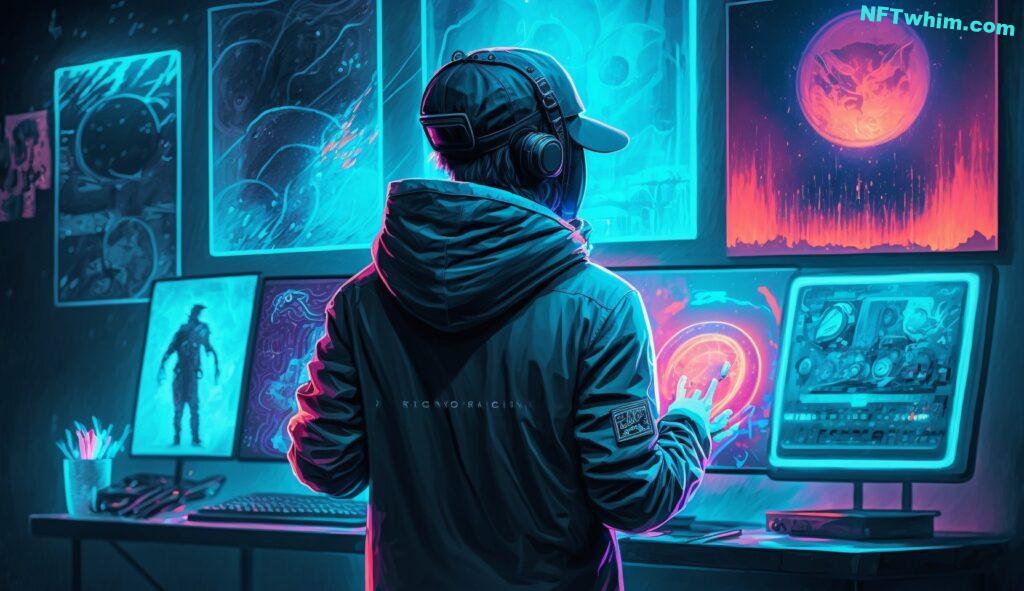
Challenges Faced By Musicians In Selling Music Via NFTs
There are some challenges facing musicians and artists when selling their music via NFTs:
One of the biggest challenges is educating the public about crypto wallets and how to purchase and store these tokens. Most people aren’t aware of what a wallet is or how it works. Musicians need to familiarize themselves with using blockchain technology in order to effectively market their music NFTs. This can be costly and time consuming for independent artists who don’t have access to deep pockets or expert marketing teams.
The second challenge involves getting potential buyers excited about buying an artist’s music as a tokenized asset rather than just streaming it online for free. It may take some convincing for them to understand why owning this particular digital asset has real value over simply listening on Spotify or YouTube. Additionally, due to the volatile nature of cryptocurrencies, prices could drop quickly if demand falls out of favor with collectors and investors.
It isn’t easy navigating these waters but many pioneering musicians have already made successful strides in utilizing NFTs as a way to monetise their artistry while maintaining control over ownership rights. With further education and promotion, more musicians will join in on capitalizing off this revolutionary new medium that promises long-term benefits far beyond traditional revenue streams.
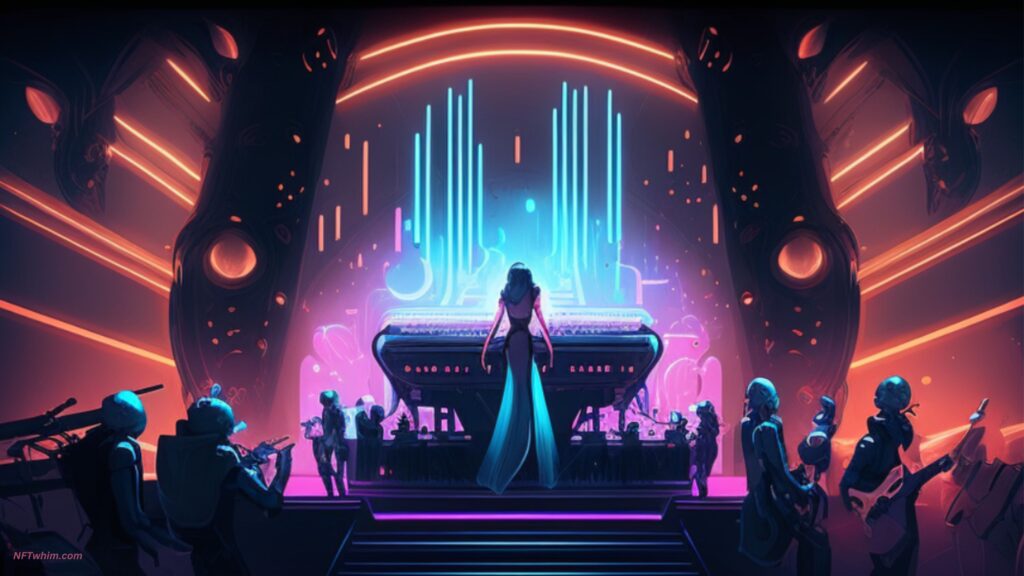
Tax Implications For Selling Music Via NFTs
The music industry is no stranger to disruption. Music NFTs (Non-Fungible Tokens) are the latest wave of innovation in this space, offering artists and fans alike a new way to monetize their work. But what about the tax implications for selling music via NFTs?
To start with, it’s important to recognize that any income generated through selling music or art on the blockchain is subject to taxation just like other types of income. This applies regardless of whether you receive payment in cryptocurrency or fiat currency. Depending on your individual situation, you may be liable for capital gains taxes or self-employment taxes depending on the nature of your sale and the amount earned.
In addition, if you have multiple streams of revenue coming into play when selling music via NFTs (such as licensing fees), each one should be treated differently under the law when filing taxes. It’s also worth noting that these laws vary from country to country; make sure you familiarize yourself with local regulations before diving into this type of business venture. With all this in mind, seeking professional advice can help ensure that everything is done properly when it comes to filing taxes related to your sale of music via NFTs.

Impact Of Blockchain On The Future Of The Music Industry
The impact of blockchain on the music industry is significant. Blockchain technology has the potential to revolutionize the way musicians and songwriters create, distribute and monetize their work by providing a secure digital platform for tracking rights, royalties and payments. This can offer huge benefits in terms of transparency and efficiency compared to traditional methods such as centralized databases or record labels. Here are some key ways that blockchain could shape the future of music:
• Music Industry Blockchain – Through blockchain-based platforms like Spotify, Apple Music, Deezer and YouTube Music, artists would be able to track their streams more accurately than ever before. Additionally, these platforms could help facilitate faster payouts for streaming revenue with near real time updates about usage data.
• Music Rights Management – By using smart contracts built on top of a public ledger system (such as Ethereum), copyright holders could easily register new tracks/albums digitally while also controlling how they’re used across various mediums (radio/TV etc.). This would make it easier for them to manage licensing agreements with third parties too.
• Blockchain Music Payments – Incentivizing fans directly through tokenization would become possible thanks to decentralized applications running on blockchains. Artists could benefit from increased engagement due to rewards given out in tokens whenever someone shares their content online or purchases merchandise related to an artist’s brand.
In short, there are many opportunities presented by blockchain technology which have yet to be fully explored but show promise for creating better outcomes for both creators and users within the music industry landscape going forwards. It remains to be seen just how much disruption this technology will bring but one thing is certain; its presence promises a seismic shift in power dynamics between major players in the music industry space.

Legal Considerations When Selling Music Via NFTs
Selling music via NFTs can be a tantalizing business opportunity. However, legal considerations must be taken into account before launching an NFT-based project. Music NFT laws and regulations are constantly evolving and understanding them is key to the success of any venture involving non-fungible tokens.
When it comes to music nft rights, creators should ensure they have all necessary licenses in place before they put their content up for sale as an NFT. Copyright infringement or violations of other intellectual property rights can lead to costly litigation that could potentially derail a creator’s career. It’s also important to note that royalties may still need to be paid when selling music via NFTS, depending on the country where the transaction takes place. Additionally, sellers should consult with tax professionals about their obligations under applicable tax laws since income from digital assets transactions may be subject to taxation.
To sum up, there are various legal issues associated with creating and selling music through NFTs which should not be overlooked – doing so could result in costly consequences down the line. Understanding these nuances is paramount for anyone looking to embark upon such a venture.
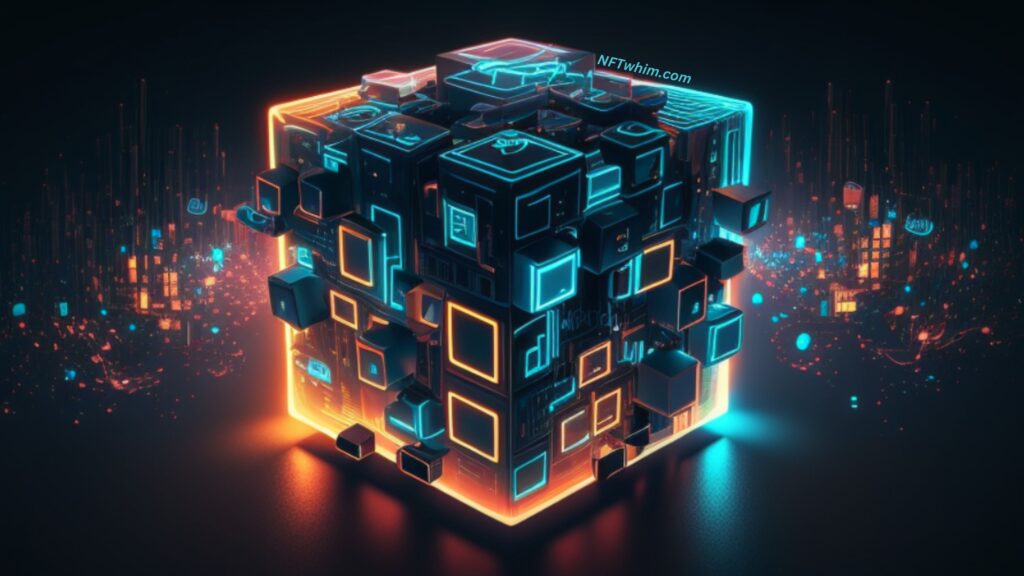
Security Issues With Buying And Selling Music Via NFTs
Given the potential financial rewards of selling music via NFTs, it is essential to understand the security risks associated with these transactions. As with any digital transaction, there are a few important considerations when buying or selling music via NFTs.
Firstly, because NFTs are stored on blockchain networks and use cryptography for authentication, they are more secure than regular online transactions. However, due to the decentralized nature of blockchains, buyers should always verify that the artist has granted permission for their work to be sold as an NFT before purchasing. This will help ensure that no copyright laws are violated and protect both buyer and seller from potential legal issues. Additionally, verifying authenticity can also prevent fraudsters from taking advantage of unsuspecting buyers by creating counterfeit versions of popular works using malicious code.
In addition to protecting against fraud, buyers should also take extra precautions when making payments through cryptocurrency wallets. Cryptocurrency wallets are vulnerable to hacking attempts which could result in loss of funds if proper security measures have not been taken such as setting up two-factor authentication or other types of multi-signature authorization protocols. Furthermore, sellers must also remember to store all private keys securely since this is what gives them access to their crypto assets. Without these keys, sellers would be unable to recover their funds if something were to happen to the wallet provider or exchange platform hosting the sale. Taking all necessary steps prior to entering into any type of transaction involving music nfts will help reduce risk and keep everyone involved safe and secure while enjoying the benefits of music nft trading.
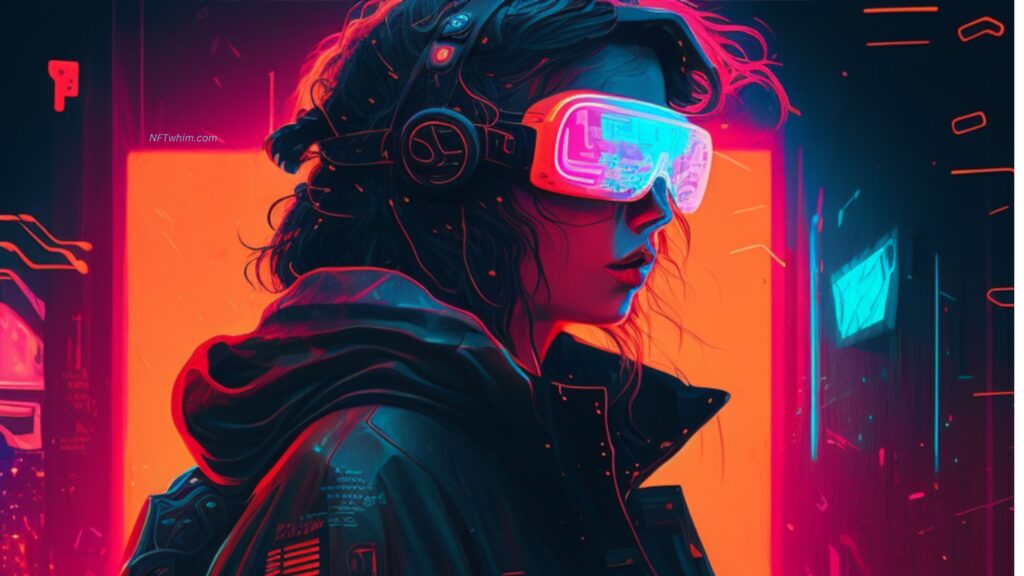
Potential Uses For Music Rights Management Using Blockchain
Back in the day, music rights were a complicated and convoluted system. With the advent of blockchain technology, however, there has been an opportunity to revolutionize how musical rights are managed. This innovative technology can be used to protect intellectual property while also allowing for increased access to creative works by artists.
Blockchain technology offers several unique advantages when it comes to managing music rights and protecting creators’ work from unauthorized use. By using distributed ledger systems, each transaction is recorded on a public ledger that cannot be tampered with or changed without consensus among all parties involved. Additionally, smart contracts automate payment processing and ensure that royalties are paid out fairly and quickly. Furthermore, immutable records make sure that any changes or updates to copyright information are reflected accurately across all platforms.
The potential uses for blockchain technology in the music industry go beyond simply managing rights; it could also facilitate new opportunities for collaboration between different stakeholders such as publishers, labels and streaming services. The transparency offered by this technology would allow everyone involved in the process to keep track of who owns what share of a particular piece of music at any given time – something which was previously impossible due to antiquated processes within the industry itself. In short, blockchain-based solutions provide much needed clarity when it comes to tracking usage and payments related to copyrighted material online – making them invaluable tools for musicians looking to maximize their profits while still being able to maintain control over their work.
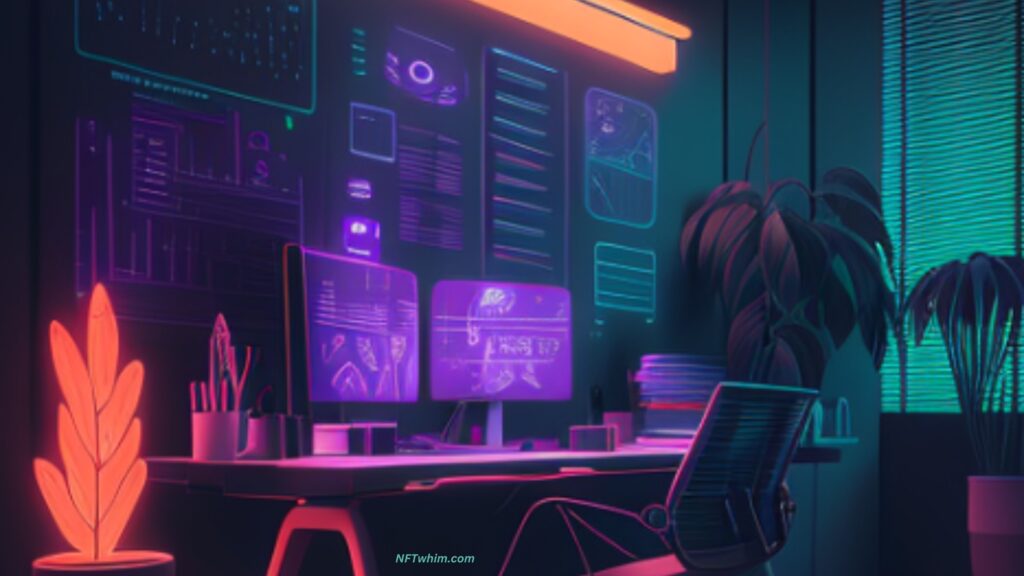
Conclusion
In conclusion, NFTs have created a new way to buy and sell digital music that offers many benefits. Music NFTs provide an alternative form of revenue for musicians and are more secure than traditional methods. They can also be used as rights management tools using blockchain technology. However, there are some legal considerations when selling music via NFTs, as well as potential security issues that must be taken into account before investing in them.
Overall, the introduction of Music NFT is a revolutionary step forward in the world of digital art. As they say: “A song heard from afar will bring joy to the heart”. So don’t miss out on this amazing opportunity; get involved today with Music NFTs!
Author: Robin Olsson
Author Bio: I’m Robin and on this website, I share everything I’ve learned since getting into NFTs in 2021. I have a background in research and I’ve been in crypto for several years. You can read more about me here.
